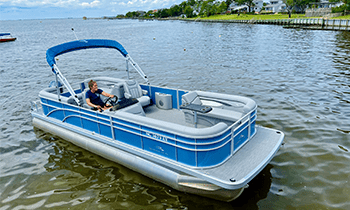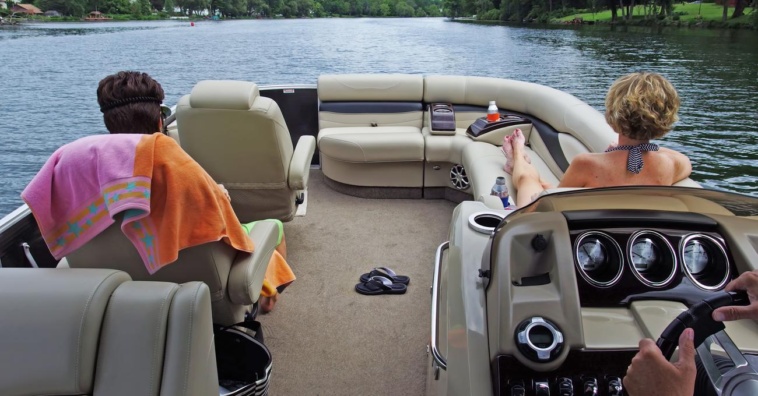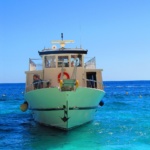Thinking of renting a pontoon boat to enjoy a relaxing day out on the water? You might be wondering if you can bring your own equipment along for the ride. Well, the good news is that most pontoon boat rental companies are quite welcoming when it comes to bringing your own equipment. From fishing gear to water toys, you are usually allowed to bring whatever you need to enhance your experience on the boat. However, it’s always a good idea to check with the rental company beforehand to ensure there are no specific restrictions or requirements in place. So, pack up your gear and get ready for a fantastic day of fun on the water with your pontoon boat rental!
Types of equipment allowed
Safety equipment
When renting a pontoon boat, it is essential to have the necessary safety equipment on board. This includes life jackets or personal flotation devices (PFDs) for every passenger. These PFDs should be U.S. Coast Guard approved and in good condition. In addition, it is advisable to carry a first aid kit, fire extinguisher, whistle, and a throwable device. These safety measures ensure that you and your passengers are prepared for any unexpected situations while out on the water.
Fishing equipment
A pontoon boat can be a great choice for fishing enthusiasts. Most rental companies allow fishing equipment on board, such as fishing rods, reels, tackle boxes, and bait. However, it is crucial to respect any local fishing regulations and obtain the necessary permits or licenses before casting a line. Make sure to clean and organize your fishing equipment, as you will be responsible for any damage caused.
Water sports equipment
If you’re planning on enjoying some water sports during your pontoon boat adventure, you’ll be happy to know that many rental companies allow various water sports equipment. This can include wakeboards, water skis, towable tubes, snorkeling gear, and even paddleboards. However, it is essential to confirm with the rental company in advance whether they offer specific water sports gear or if you need to bring your own. Safety should always be a priority, so make sure you have the appropriate safety equipment for your chosen water sport as well.
Personal belongings
When it comes to personal belongings, there are typically no restrictions on bringing items like food, coolers, sunscreen, towels, and cameras on board a pontoon boat rental. However, it is advisable to secure loose items properly, as the boat’s movement can cause them to shift or fall overboard. It’s also a good idea to bring waterproof storage bags or containers to protect your valuables from water damage. Remember, you are responsible for any damage caused to your personal belongings during the rental period.
Size and weight restrictions
Maximum weight capacity
Pontoon boats have specific weight capacity limits that are determined by their design and construction. Exceeding these limits can compromise the boat’s stability, performance, and safety. It is crucial to inquire about the maximum weight capacity of the pontoon boat you are renting. This weight capacity includes the combined weight of the passengers, equipment, and any belongings on board. To ensure a safe and enjoyable experience, it is essential to adhere to these weight restrictions.
Physical dimensions
In addition to weight restrictions, pontoon boats also have physical dimension limitations. These limitations refer to the maximum length, width, and height of the equipment or belongings you plan on bringing onboard. It is crucial to measure your equipment beforehand and compare it to the boat’s dimensions specified by the rental company. This will prevent any last-minute surprises or difficulties fitting your equipment onto the boat. By adhering to these physical dimension restrictions, you can ensure a hassle-free experience.
Storage limitations
Pontoon boats usually offer ample storage space for your equipment and personal items. However, it is important to inquire with the rental company about the available storage options on the specific boat you’re renting. Some pontoons have built-in storage compartments, while others may provide additional storage containers or lockers. It is essential to utilize the storage spaces provided to keep the boat organized and prevent any hazards or obstructions. Be mindful not to overload the boat with excessive equipment, as it can affect the boat’s stability and maneuverability.
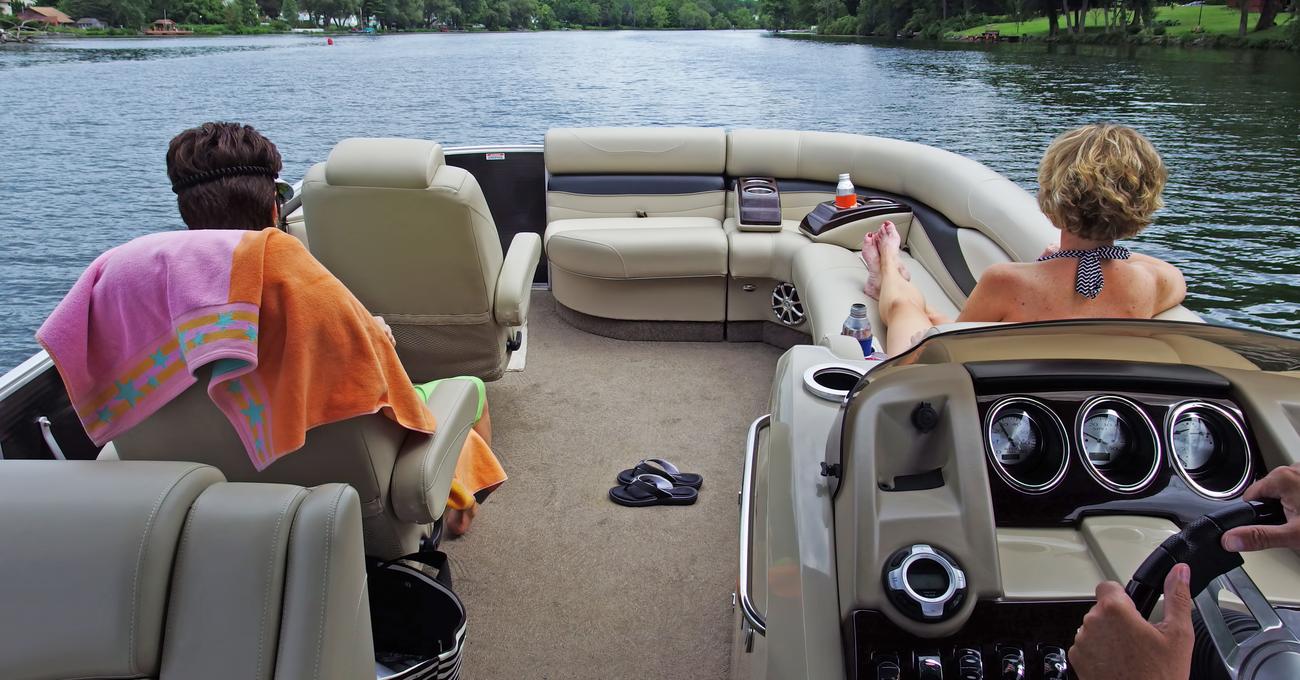
Safety considerations
Stability and balance
Maintaining stability and balance on a pontoon boat is crucial for a safe and enjoyable experience. When bringing additional equipment on board, it is important to distribute the weight evenly to avoid any imbalances. Uneven weight distribution can affect the boat’s stability, causing it to lean to one side or become more susceptible to tipping. Make sure to secure the equipment to prevent shifting during the boat’s motion and trim adjustments. By prioritizing stability and balance, you can ensure a safe and comfortable ride for everyone on board.
Navigation and visibility
Bringing additional equipment on a pontoon boat should not obstruct the captain’s visibility or interfere with the navigation equipment. It is crucial to position the equipment in a way that does not obstruct important sightlines or block vital control panels, such as the steering console or navigation instruments. This ensures that the captain can safely maneuver the boat and maintain clear visibility of the surroundings. Keeping equipment properly stowed and secured will help maintain a clear and unobstructed navigation area.
Obstruction and hazards
Any additional equipment brought on board should not pose a hazard to the passengers, crew, or the boat itself. Ensure that all equipment is properly secured and stored to prevent any tripping hazards or potential dangers caused by loose items. It is also important to consider the potential impact of additional equipment on the boat’s systems, such as electrical, fuel, or ventilation systems. Following safety guidelines and ensuring that all equipment is safely stored and secured will help minimize the risk of accidents or damage.
Equipment rental availability
Provided equipment
When renting a pontoon boat, rental companies usually provide basic equipment required for a safe outing. This can include life jackets, fire extinguishers, and safety equipment mandated by local regulations. Some rental companies may also provide additional amenities like coolers, anchors, or navigation aids. It is important to clarify with the rental company what specific equipment will be provided with your rental. By knowing what is included, you can plan accordingly and avoid duplicating items you may not need to bring.
Extra equipment options
If you require additional equipment beyond what is provided by the rental company, it is advisable to inquire in advance about their availability. Depending on the rental company, you may have the option to rent additional equipment to enhance your experience. This can include water sports gear, fishing equipment, or even luxury add-ons like BBQ grills or water slides. By communicating your needs and preferences ahead of time, you can ensure that the rental company can accommodate your requests and have the necessary equipment available for your rental.
Inquire in advance
To avoid any last-minute surprises or disappointments, it is always a good idea to inquire about equipment availability well in advance. Contact the rental company and discuss the specific equipment you would like to bring or rent. This way, the rental company can inform you if they have any restrictions or if they can provide the equipment you need. By planning ahead, you can ensure that you have all the necessary equipment for a fantastic day on the water.
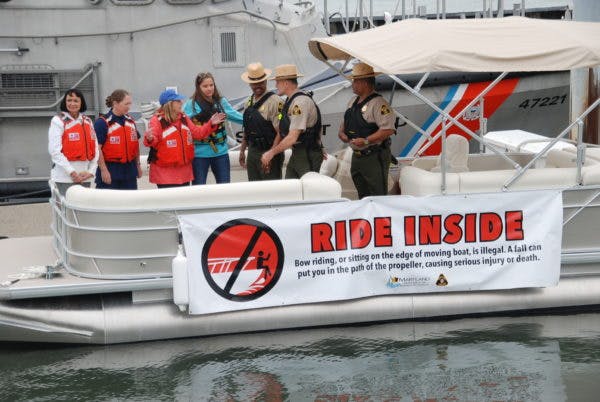
Insurance requirements
Liability coverage
When renting a pontoon boat, it is essential to have liability insurance coverage. Liability insurance protects against any damages or injuries you may cause to others while operating the rental boat. Most rental companies require proof of liability insurance before renting out the boat. If you do not have your own liability insurance, the rental company may offer insurance options as part of the rental agreement. Confirm with the rental company about their insurance requirements and ensure you have adequate coverage to protect yourself and others.
Additional equipment coverage
In addition to liability coverage, it is important to consider whether your insurance policy covers any additional equipment you bring on board. Some insurance policies may provide coverage for personal belongings or equipment, while others may not. It is essential to review your insurance policy or inquire with your insurance provider about any coverage limitations. If your policy does not provide adequate coverage, you may need to consider purchasing additional insurance or rental company insurance to protect your equipment.
Providing proof of insurance
To comply with the rental requirements, you will typically need to provide proof of insurance to the rental company. This can be in the form of an insurance certificate or policy document. Make sure to have these documents readily available before your rental period begins. If you opt for the rental company’s insurance coverage, they will guide you through the necessary documentation and processes. Providing proof of insurance ensures that you are adhering to the rental company’s policies and protecting yourself and your belongings adequately.
Restricted or prohibited items
Firearms and weapons
Most rental companies strictly prohibit the presence of firearms and weapons on their pontoon boats. Bringing firearms or weapons not only violates most rental agreements but can also pose significant safety risks. As a general rule, it is best to leave any weapons or firearms at home or properly stored in compliance with local laws and regulations. The focus of your pontoon boat rental should be on enjoying a peaceful and safe day on the water.
Explosives and flammable materials
To maintain a safe environment, it is crucial to avoid bringing explosives or flammable materials on a pontoon boat rental. This includes fireworks, fuel containers, or any other item that may pose a fire hazard. The presence of such items not only jeopardizes your safety but also the safety of other boaters and the boat itself. It is important to adhere to this restriction to prevent accidents, fires, or potential damage to the rental boat.
Illegal substances
The use or possession of illegal substances is strictly prohibited on pontoon boat rentals, just as it is on any other legal rental. Activities involving illegal substances endanger your safety, the safety of others, and can have severe legal repercussions. It’s important to respect the rules and regulations governing the rental agreement and adhere to all legal requirements. Enjoying a pontoon boat rental should be a fun and memorable experience, free from the complications that accompany illegal substances.
Items that can damage the boat
Pontoon boats have specific design limitations, and bringing items that can damage the boat is strictly prohibited. This can include items with sharp edges, heavy equipment that may dent or scratch the boat, or corrosive materials that may cause damage to the boat’s surfaces. It’s essential to check with the rental company about any restrictions on specific items and avoid bringing anything that could potentially harm the boat’s structure, upholstery, or equipment.
Live animals
With few exceptions, rental companies generally do not allow live animals on pontoon boat rentals. This restriction is put in place to ensure the comfort and safety of all passengers. Bringing animals on board can cause unnecessary stress to the animals and may lead to hygiene issues. Unless specifically stated otherwise by the rental company, it is best to make alternative arrangements for your pets or leave them in a safe and comfortable environment while enjoying your pontoon boat experience.
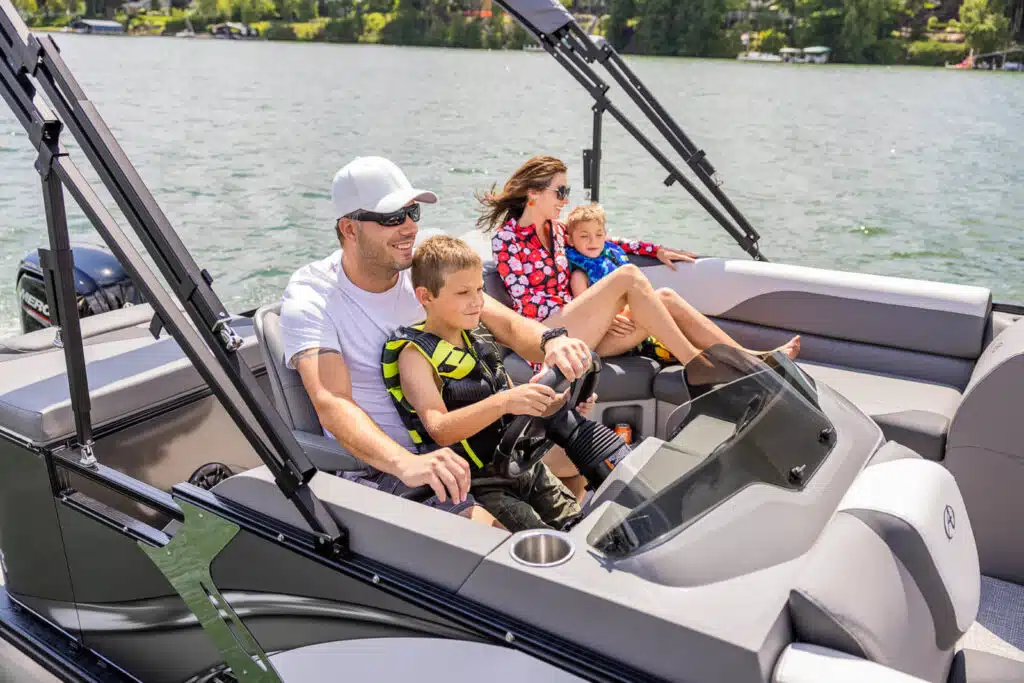
Additional fees
Equipment rental fees
Renting additional equipment beyond what is provided by the rental company may incur additional charges. The rental company will have their own fee structure for any extra equipment you choose to rent. The fees can vary depending on the type of equipment, duration, and demand. It is essential to discuss the rental fees with the company beforehand to avoid any surprises when it comes time to settle the final bill. By knowing the rental fees in advance, you can plan your budget accordingly and enjoy the equipment you need without any concerns.
Security deposit
Many rental companies require a security deposit when renting a pontoon boat. This deposit acts as a safeguard for any potential damages, losses, or violations of the rental agreement. The amount of the security deposit can vary depending on factors such as the rental duration, the value of the boat, and any additional equipment rented. It is important to understand the terms and conditions of the security deposit, including how it will be refunded after the rental period, to ensure a smooth rental experience.
Damage or loss charges
In the event of any damage or loss to the rental boat or equipment, you may be responsible for covering the repair or replacement costs. Rental companies will have specific guidelines and charges for any damages or losses incurred during the rental period. It is important to inspect the boat and equipment thoroughly before and after the rental to identify and report any damages or losses. By taking proper care and returning the equipment in good condition, you can avoid additional charges and ensure a positive rental experience.
Communication and agreement
Discussing added equipment with the rental provider
To ensure a seamless rental experience, it is advisable to communicate your equipment needs and preferences with the rental provider in advance. Discussing the additional equipment you would like to bring or rent will help the rental provider understand your requirements and provide suitable recommendations. The rental provider can guide you through any restrictions, offer advice on equipment options, and address any concerns you may have. Open and clear communication with the rental provider builds a solid foundation for a successful rental experience.
Documenting the agreement
Once you have finalized the rental agreement and discussed the additional equipment, it is crucial to document the agreement. This can include noting the specific equipment you plan to bring or rent, the associated fees, and any applicable terms and conditions. Having a written agreement protects both parties and ensures that there is a clear understanding of the rental conditions. Make sure to review the agreement carefully and address any questions or concerns before signing.
Signing waiver forms
Before embarking on your pontoon boat rental, you may be required to sign waiver forms that release the rental provider from liability. These waiver forms acknowledge that you understand and accept the inherent risks involved in boating and that you will operate the rental boat responsibly. It is essential to read the waiver forms thoroughly and ask any necessary questions to ensure you comprehend the terms and conditions. By signing these forms, you acknowledge your responsibility and commitment to follow all safety guidelines and operate the rental boat in a responsible manner.
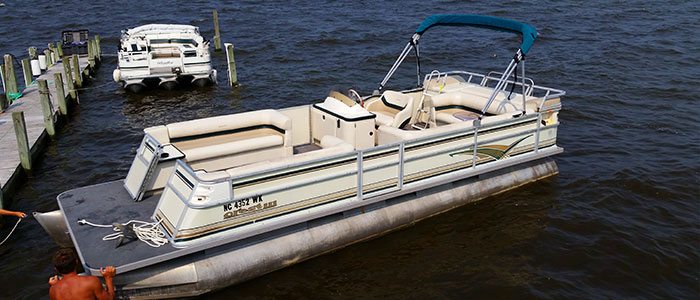
Responsibility for equipment
Owner’s responsibility
The rental provider is responsible for ensuring that the boat and the provided equipment are in proper working order and meet all safety requirements. They should perform regular maintenance and inspections to guarantee the boat’s seaworthiness and the equipment’s functionality. Before the rental period begins, the boat should be clean, fueled, and ready for use. It is the owner’s responsibility to provide a safe and enjoyable pontoon boat rental experience for their customers.
Renter’s responsibility
As the renter, you have the responsibility to treat the boat and the equipment with care and respect. This includes following all safety guidelines, operating the boat responsibly, and complying with all applicable laws and regulations. It is crucial to use the equipment as intended, secure it properly, and take precautions to prevent any damages or accidents. Additionally, you are responsible for returning the boat and equipment in the same condition as when you received them, with the exception of normal wear and tear.
Returning equipment in good condition
When the rental period comes to an end, it is important to return the boat and any additional equipment in good condition. This includes cleaning the boat, removing any trash or personal belongings, and properly stowing all equipment. Conduct a final inspection to ensure that no damages or losses have occurred during your rental. By returning the equipment in good condition, you not only fulfill your responsibility as the renter but also contribute to maintaining the rental company’s high standards and ensuring a positive experience for future renters.
Penalties for non-compliance
Risk of fines or additional charges
Failure to comply with the rental agreement, safety guidelines, or statutory requirements may result in penalties, fines, or additional charges. These penalties can vary depending on the severity of the non-compliance and the specific terms outlined in the rental agreement. It is crucial to familiarize yourself with the rental agreement, safety guidelines, and any relevant laws and regulations to avoid any penalties or additional expenses. By adhering to the rules and regulations, you ensure a smooth and trouble-free rental experience.
Damage claims
If any damages occur to the rental boat or equipment during your rental period and they are deemed your responsibility, you may be subject to damage claims. The rental company will assess the extent of the damages and repair or replace the affected items. The cost of repairs or replacements will be charged to you, typically deducted from the security deposit or billed separately. To avoid damage claims, it is important to take care of the equipment, operate the boat responsibly, and report any damages promptly to the rental company.
Legal consequences
In cases of severe non-compliance with rental agreements, safety guidelines, or legal requirements, there may be legal consequences. This can include legal actions taken by the rental company, fines imposed by authorities, or potential legal liabilities resulting from accidents or injuries. To ensure a safe and enjoyable rental experience, it is crucial to understand and follow all rules and regulations. By doing so, you protect yourself, your fellow passengers, and the rental company from legal risks and potential harm.
